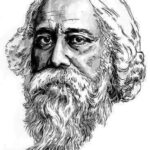
Personality: Meaning and Determinants of Personality
Man is not born a person. At birth he is an infant possessing the potentiality of becoming a person. After birth he associates with other human beings and comes under the influence of their culture. As a result of a variety of experiences and social influences he becomes a person and comes to possess a personality.
I. The Meaning of Personality:
The term ‘personality’ is derived from the Latin word ‘persona’ which means a mask. According to K. Young, “Personality is a …. patterned body of habits, traits, attitudes and ideas of an individual, as these are organized externally into roles and statuses, and as they relate internally to motivation, goals, and various aspects of selfhood.” G. W. Allport defined it as “a person’s pattern of habits, attitudes, and traits which determine his adjustment to his environment.”
According to Robert E. Park and Earnest W. Burgess, personality is “the sum and organization of those traits which determine the role of the individual in the group.” Herbert A. Bloch defined it as “the characteristic organization of the individual’s habits, attitudes, values, emotional characteristics……. which imparts consistency to the behaviour of the individual.” According to Arnold W. Green, “personality is the sum of a person’s values (the objects of his striving, such as ideas, prestige, power and sex) plus his non- physical traits (his habitual ways of acting and reacting).” According to Linton, personality embraces the total “organized aggregate of psychological processes and status pertaining to the individual.”
Personality, as we understand it, says MacIver, “is all that an individual is and has experienced so far as this “all” can be comprehended as unity.” According to Lundberg and others, “The term personality refers to the habits, attitudes, and other social traits that are characteristic of a given individual’s behaviour.” By personality Ogburn means “the integration of the socio psychological behaviour of the human being, represented by habits of action and feeling, attitudes and opinions.” Davis regards personality “a psychic phenomenon which is neither organic nor social but an emergent from a combination of the two.”
According to Anderson and Parker, “Personality is the totality of habits, attitudes, and traits that result from socialization and characterizes us in our relationships with others.” According to N.L. Munn, “Personality may be defined as the most characteristic integration of an individual’s structure modes of behaviour, interests, attitudes, capacities, abilities and aptitudes.” According to Morton Prince, “Personality is the sum total of all the biological innate dispositions, impulses tendencies and instincts of the individual, and the acquired disposition and tendencies acquired by experience.” According to Young, “Personality is the totality of behaviour of an individual with a given tendency system interacting with a sequence of situations.”
Personality Traits – Meaning and Different Types of Traits
An individual’s behavior towards others, attitude, characteristics, mindset make his personality. Personality development is defined as a process of enhancing one’s personality. Personality development sessions guide an individual as to how he/she can develop his/her personality.
Personality Traits
Broadly there are five parameters which describe an individual’s personality. These five dimensions are also called as “Big Five” Factors, and the model is referred to as Five Factor Model also abbreviated as FFM.
The Five Factor Model was initially proposed by Costa & McCrae in the year 1992 and often describes the relation between an individual’s personality and various behaviours.
Following are five personality traits of an individual:
- Openness to experience
Individuals with openness to experience are generally very active, have a tremendous inclination towards creativity and aesthetics and listen to their heart i.e. follow their inner feelings. Such individuals are generally open to new learnings, skill sets and experiences. People who score high on openness are quite broadminded and modern in their outlook as compared to individuals who score low on the same parameter. Such individuals are conservative, reluctant to changes and have a traditional approach in life.
- Conscientiousness
As the name suggests, individuals with a Conscientiousness personality trait listen to their conscience and act accordingly. Such individuals are extremely cautious and self disciplined. They never perform any task in haste but think twice before acting. People with this personality trait are generally methodical and tend to become perfectionists in the long run. People who score high on conscientiousness are proactive, goal oriented and self disciplined. They strive hard to accomplish goals and objectives within the stipulated time frame. Individuals who score less are little laid back and are not much goal oriented.
- Extraversion and Introversion
Carl Jung popularized both the terms – “Extraversion” and “Introversion”.
- Extraversion: Extraversion refers to a state where individuals show more concern towards what is happening outside. Such individuals love interacting with people around and are generally talkative. They do not like spending time alone but love being the centre of attraction of parties and social gatherings. Such individuals love going out, partying, meeting people and often get bored when they are all by themselves. They admire the company of others and hate staying alone.
- Introversion: Introversion, on the other hand refers to a state when an individual is concerned only with his own life and nothing else. Such individuals do not bother about others and are seldom interested in what is happening around. They prefer staying back at home rather than going out and spending time with friends. Such individuals speak less and enjoy their own company. You would never find them in meetings, clubs, parties or social get-togethers. They generally do not have many friends and tend to rely on few trusted ones.
- Agreeableness
Agreeableness is a personality trait which teaches individuals to be adjusting in almost all situations. Such individuals do not crib and face changes with a smile. They accommodate themselves to all situations and are friendly and kind hearted. People who score high on agreeableness are ready to help others and flash their trillion dollar smile whenever a problem arises. Individuals who score low on agreeableness on the other hand find difficulties in adjusting with others and are little unfriendly.
- Neuroticism
Neuroticism is a trait where individuals are prone to negative thoughts such as anxiety, anger, envy, guilt and so on. Such individuals are often in a state of depression and do not how to enjoy life. They always look at the negative sides of life and find extremely difficult to cope up with stress.







Leave a Reply